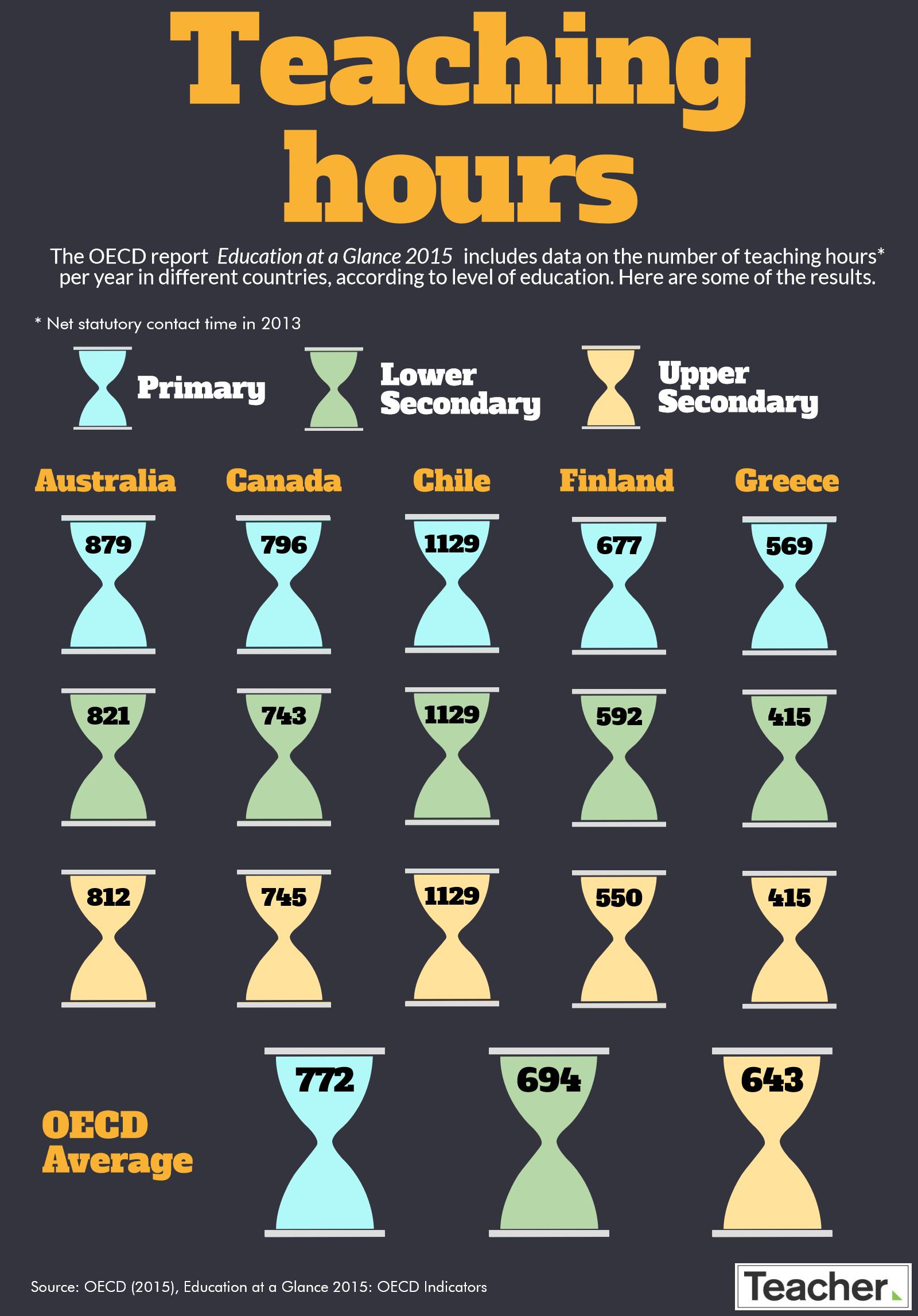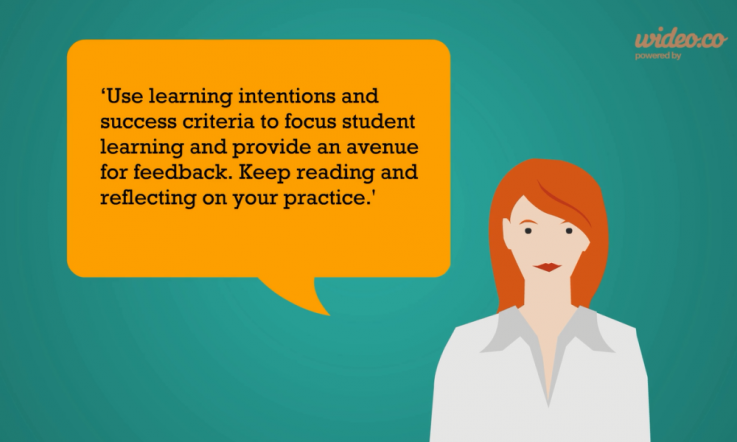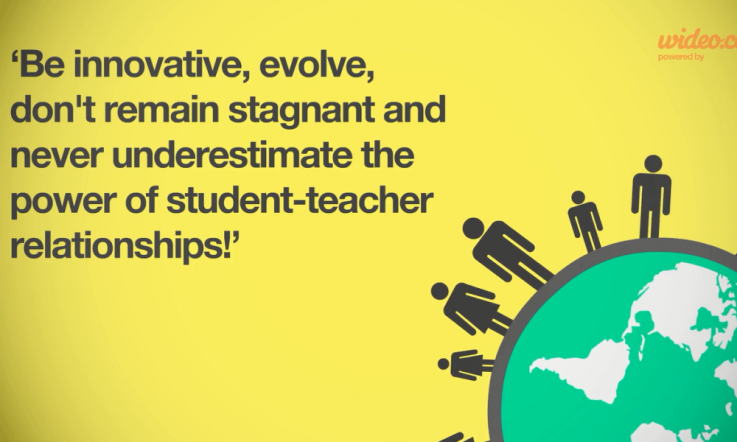It's been two years since Teacher went live at the 2014 Australian Council for Education Research Excellence in Professional Practice Conference. To celebrate our second birthday, we take a look back at some of the team's favourite articles, podcasts, videos and infographics from the last year.
Replacing homework with sporting activities
To assign homework or not to assign homework? It's an ongoing debate in education. Here we spoke to Jason Borton, Principal of Richardson Primary School in Canberra, Australian Capital Territory, about how his school has replaced homework with after-school sporting activities.
‘The majority of research that we … looked at basically was saying that it's okay to have to do homework but it's not really having a great impact on kids' learning. So we thought, let's do something different.'
Instead, the school developed a partnership with the Australian Institute of Sport (AIS) to participate in its Commonwealth funded Active After-school Communities program, where local sporting organisations stage after school activities for students. ‘Getting kids involved in physical activity instead of this notion of sitting down and doing more formal school work.
‘From our perspective we think probably five hours per day of formal learning is enough for kids … especially the five-, six-, seven-year-olds. The reaction from staff has been very much “I'm finally feeling like I don't have to waste my time on this thing … I can spend time doing something else which is going to have a better impact on learning”.'
Read more about the changes at Richardson Primary School in Replacing homework with sporting activities.
How does Australia compare with other countries when it comes to the number of teaching hours in primary, lower secondary and upper secondary? This infographic compared OECD data from Canada, Chile, Finland, Greece and Australia.

Throughout November last year, explored the theme of learning spaces. School designs from around the globe showcased the finalists in the category of School Buildings from the World Architecture Festival in Singapore.
One of our favourite school designs was Ivy Bound International School in Bangkok, Thailand.
‘The aim of the design was to give a feeling of the “free-flowing and airy atmosphere of a modern gallery house”. Despite its location in a dense, bustling city, architects wanted to create a calm, green environment for the students (aged birth to seven). The site was originally a residential house dominated by six old rain trees with large root systems. The new design – inspired by play blocks – fitted the school around these existing “living sculptures”. Other elements include a wide corridor alongside classrooms acting as a gallery for student artwork.'

Lead Architect: eco.id Architects. Photograph by Mr. Banharn Nambuddee.
School designer Peter Lippman also gave Teacher readers further insight into school design. In Crafting collaborative places he discusses designing the ‘spaces-in-between' and collaborative learning spaces, while in Learning spaces: The shifting lens he discusses transformative learning environments.
The Research Files Episode 14: Andreas Schleicher on the impact of technology on learning outcomes
The Research Files has once again come out on top as Teacher's most popular podcast series. Once a month academics provide a snapshot of the findings of their research for a short, easily accessible podcast for those who like to listen on the go.
One of our favourites was published back in October 2015. Andreas Schleicher joined us from Paris to talk about the findings of an OECD report that explores the impact of technology on student learning outcomes.
‘... Well, it's a combination of 21st Century technology and 21st Century pedagogy that's going to make a difference, and that's where we see a difference.
‘What it means is that we have to invest in professionalisation, that we have to create a work environment that actually is more technology-rich, that technology becomes an integral part of advanced pedagogy.
‘And, that's often still missing - we still have a work organisation that is based on the Industrial Age, you know where we have fixed classroom hours, numbers of teachers and students and so on. That isn't well adapted to the potential of technology.
‘...Technology has huge potential to transform, to fundamentally transform, learning processes. You know it can create a much more open pedagogical environment, it can connect the home environment and the school environment, it can give students access to the most advanced knowledge, anywhere, anytime, rather than giving them a textbook that was printed last year and maybe designed five years ago.'
Listen to the full podcast in Episode 14 of The Research Files.
To download all Teacher's podcasts for free, visit our iTunes or SoundCloud channels.
Inspirational teachers: John Hattie, Julia Gillard, Dylan Wiliam and Nancie Atwell
To celebrate World Teachers' Day 2015, Teacher put together a special video series where educators, academics and public figures reflected on the teachers who inspired them when they were at school. Part 1 featured four educators from Casuarina Senior College in Darwin, Northern Territory – Aaron Motlop, Peter Ramsay, Petroula Yiannakos and Tim Burch.
In Part 2, Professor John Hattie, Former Prime Minister of Australia Julia Gillard, Emeritus Professor Dylan Wiliam and winner of the inaugural Global Teacher Prize, Nancie Atwell, shared their choices.
Simply click ‘play' to take a look.
Inspirational teachers: John Hattie, Julia Gillard, Dylan Wiliam and Nancie Atwell from ACER on Vimeo.
Thanks to all our readers and listeners for your support this year. Now, we're off to blow out the candles on our birthday cake!
What was your favourite Teacher article from the past year? Is there a topic you'd like to see covered in the next 12 months? Share your thoughts by posting a comment below, tweeting @teacheracer or leaving a message on our Facebook page.



